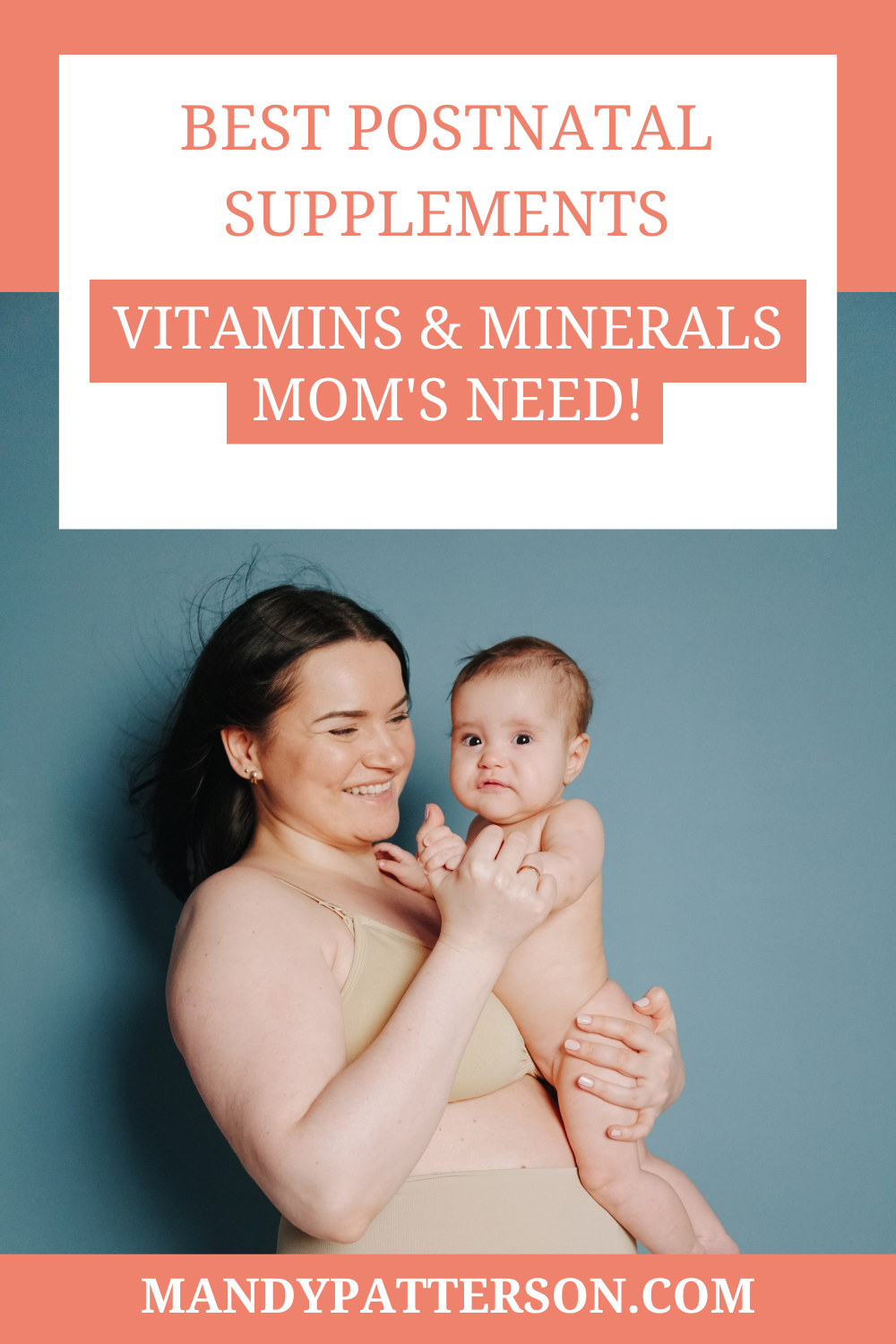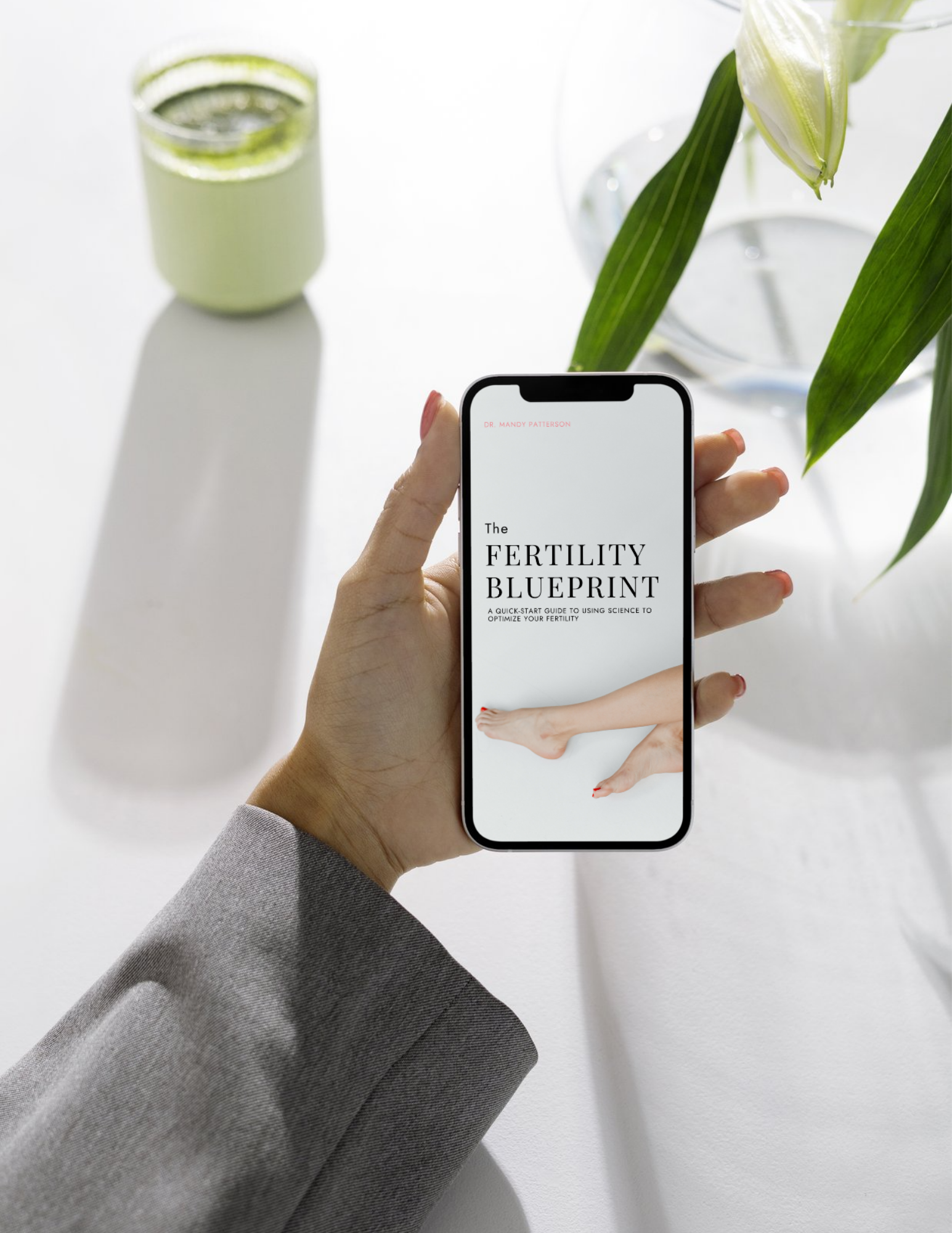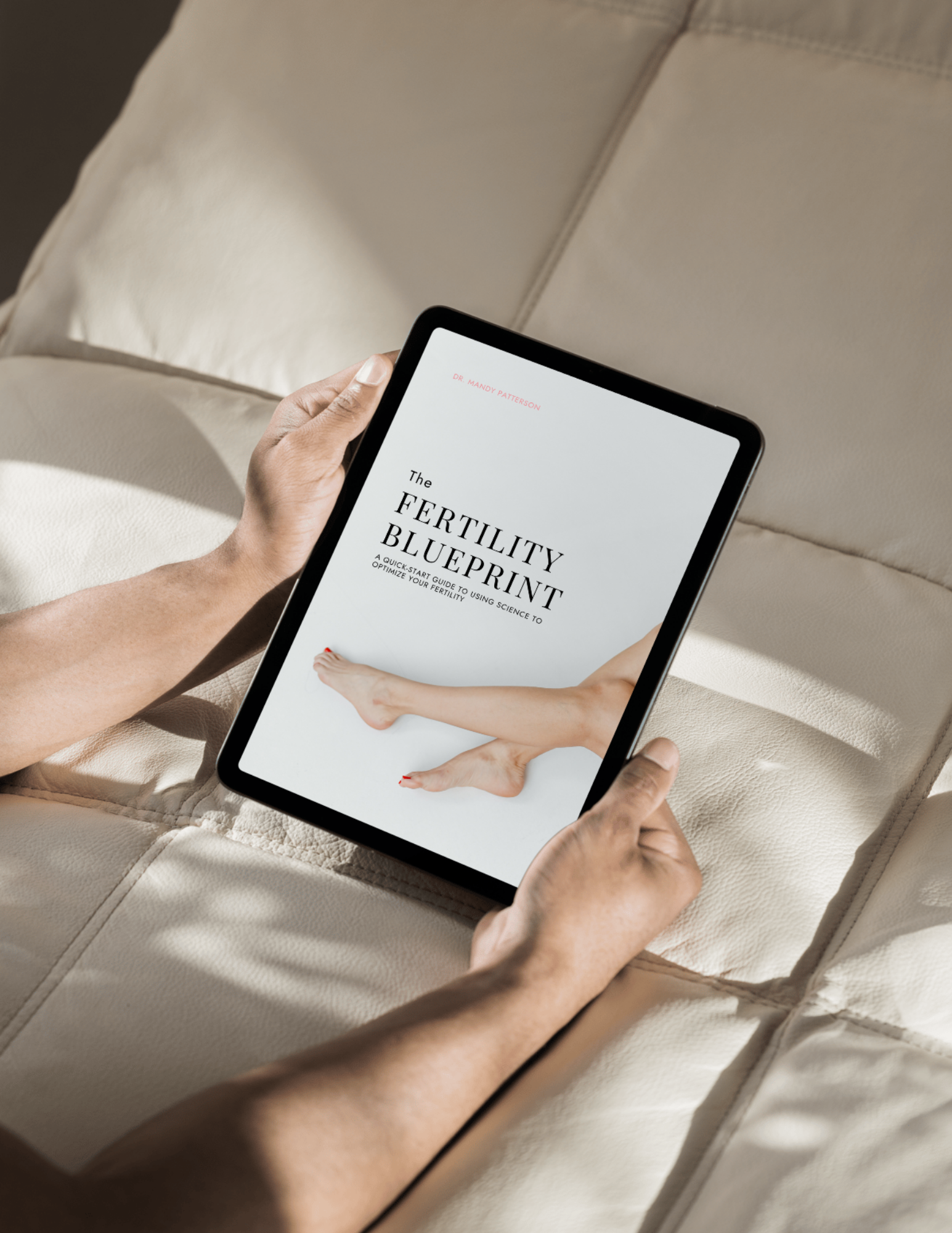The postpartum period can be extremely challenging for new and veteran parents alike. Not only has your life changed, and a whole new person entered the picture, but your body must recover from labor or major surgery! No matter what your labor looked like, the postpartum period is all about rebalancing and healing. That’s why I’m sharing the best postpartum supplements to help you feel like you again.
As a mom of six and a functional naturopath and fertility practitioner, I have experience with the postpartum period. I’ve seen countless women through conception, pregnancy, birth, and postpartum. Postnatal vitamins help new mothers recover from pregnancy and birth and help with their babies’ healthy development outside the womb.
In this article, I’m sharing everything you need to know about postpartum supplements, especially the vitamins and minerals moms actually need. Keep reading to learn more!
Prenatal vs. Postnatal Vitamins: What’s the Difference?
Your doctor will tell you to start taking a prenatal daily vitamin as soon as you conceive. If you’ve been preparing for pregnancy and working with a fertility specialist, you will likely already have started taking a prenatal months before conception. Prenatal vitamins exist to prevent neural tube defects in the fetus and help with the nervous system and brain development.
Prenatal vitamins also help prepare the mom’s body for pregnancy by ensuring she has enough essential nutrients for both herself and the developing baby. An essential nutrient is often obtained from a variety of foods, but during pregnancy, these nutrients can be quickly depleted. Indeed, pregnancy uses up a lot of nutrients, including any nutrient stores.
While a healthy diet is the best way to get many of the key nutrients your body needs during pregnancy, sometimes even that is not enough. Sometimes, a pregnancy asks so much of your body that your nutritional needs, through your diet alone, may not be enough. That is why a daily prenatal vitamin is so important.
On the other hand, postpartum moms need other types of vitamins to help support milk production, help with baby blues, and recover from hair loss. These include the vitamins B complex–B1, B2, B6, and B12; vitamin D, choline, iodine, and docosahexaenoic acid (DHA).
Taking prenatal and postnatal vitamins can help you get an overall consistent amount of key vitamins that can meet nutritional needs during pregnancy and after the transition between the two.
How to Choose a Postnatal Supplement
How do you choose a postnatal supplement? Often, the hospital staff where you gave birth will tell you to simply continue taking your prenatal vitamin. As we just discussed, your body has different nutritional needs postpartum. Supplements specifically for the postpartum period will better help you recover during this critical time.
When choosing the best postnatal supplement for you, it’s not as simple as choosing the first one you find or the most expensive one. You need a postnatal supplement that fits your unique situation and needs. Those needs may include different nutrients due to due to complications during birth, not taking enough prenatal vitamins, getting baby blues, improving milk supply, increasing iron intake, or just seeking health balance.
Here is what to look for when choosing a postnatal supplement.
- Price – The price of supplements can have a high range. Price differences can be related to the number of ingredients or quality. If there are concerns about budget constraints, there are budget-friendly postnatal vitamin supplements as low as $35 and possible additional discounts through newsletter sign-ups or coupons.
- Third-Party Tested – The Food and Drug Administration (FDA) does not regulate postnatal vitamins. Some manufacturing companies do third-party testing on their own. This assures them that what they make is accurate and of good quality and provides their customers with a sense of trust.
- Type Of Supplement – Postnatal supplements can come as gummy vitamins, capsules, soft gel, or liquid form. This is important because some capsules may be too big, especially if swallowing pills is not your thing.
Essential Nutrients for Postpartum Women
Often, a woman’s needs for certain nutrients can be even higher postpartum than during pregnancy! Here are the essential nutrients for postpartum women. When looking for the best postpartum supplements, make sure they include these nutrients.
Iron
Low iron can be a result of childbirth, especially when there are cases of extreme blood loss. It can cause fatigue, altered cognitive function, and depressive symptoms in postpartum women, as well as poor development and growth in the baby.
Interestingly, postpartum women who have adequate iron stores will likely not need to supplement with iron unless they are not eating iron-rich foods. This is due to the lack of menstrual blood loss during postpartum.
However, every postpartum woman will have her menstrual cycle return at a different time. When your period returns, ensure you are consuming enough iron (either through diet or supplements) to meet your recently increased needs.
Omega-3
The most crucial omega-3 fatty acid for infant development is DHA. It’s important for breastfeeding mothers to consume enough so that their breast milk transfers the nutrient to the infant. Studies have found that infants of mothers who have higher DHA concentrations in their breast milk have better brain and vision development compared to those with lower DHA levels.
However, omega-3 fatty acid is important for women who are not breastfeeding as well due to its ability to enhance mental clarity and reduce the risk of postpartum depression.
Choline
Interestingly, research has shown that choline is just as vital for reducing neural tube defects in utero as folate.
Choline is vital for both fetal and infant brain development, and choline levels in breast milk are directly linked to the infant’s choline levels.
Folate
Maintaining adequate folate levels during the postpartum period is important, especially if you’re breastfeeding. Folic acid is required for DNA synthesis, making it essential for your baby to consume through breast milk (or formula that is fortified with folic acid).
While pregnant women require 600 micrograms (mcg) of folic acid, breastfeeding and non-breastfeeding postpartum women should continue taking 500mcg and 400mcg of folic acid, respectively.
Vitamin D
Vitamin D is one vitamin you don’t want to miss! Vitamin D supports both mother and baby’s immune system, brain, and nervous system, and healthy vitamin D intake is linked to a reduced risk of postpartum mood disorders like depression and anxiety.
In fact, research has found that 4,000 IU per day of supplemental vitamin D is needed to maintain optimal vitamin D levels in both the mother and baby.
Vitamin B12
Vitamin B12 is vital for proper red blood cell development, forming DNA, and producing energy. Babies with low vitamin B12 levels can have inadequate growth and development, failure to thrive, or developmental delays. Women who eat many animal products often tend to have higher vitamin B12 levels, but vegans or vegetarians will need to supplement.
My Favorite Postnatal Supplements
Now that you are aware of which vitamins and minerals you especially need postpartum let’s go over my favorite postnatal supplements. These supplements provide the balance your body needs during the postpartum recovery period.
Baby & Me 2 Postnatal Multi
This supplement supports optimal nutrition for mom after birth with key nutrients like vitamins C, D3, and E, plus minerals like iodine and chromium to meet changing nutritional demands while breastfeeding. It also contains Moringa leaf to help support milk production for breastfeeding moms. This comprehensive postnatal supplement hits most nutritional boxes for postpartum moms.
Nordic Naturals Postnatal Omega-3
Nordic Naturals Postnatal Omega-3 is carefully crafted to provide the omega-3 nutritional support women require after childbirth—both for themselves and for their babies. In addition to supplying significant amounts of the omega-3 DHA needed to support neurological development in nursing infants, Postnatal Omega-3 also contains a potent dose of the omega-3 EPA to support positive mood after childbirth and optimal fat metabolism. Added vitamin D3 offers further support for healthy mood and immunity. Not to mention, the pills come as easy-to-swallow soft gels!
Earth Mama Organics Herbal Sitz Bath
The herbal sitz bath by Earth Mama Organics is not a supplement or multivitamin, but it’s a great tool for postpartum moms that I couldn’t exclude from my list. It contains easy-to-use sachets filled with a unique blend of organic herbs to help reduce swelling and speed the healing of pre-and-postnatal perineal discomfort and hemorrhoids. Brew and cool, and use as a sitz bath or to make postpartum padsicles. After brewing, recycle the sachets by placing them in the fridge to use as a cooling compress for sore lady parts.
Vitanica Lactation Blend
Nursing mothers can have difficulty initiating adequate milk flow or have difficulty maintaining a sufficient supply of milk. The Vitanica Lactation Blend takes advantage of the decades and centuries of experience women have with galactagogue (foods that increase milk supply) herbs, as well as modern clinical research in the use of natural therapies to aid in the function of nursing. If you are a mom who is struggling with breastfeeding, consider a lactation supplement like this one.
Work with a Functional Naturopath and Fertility Practitioner
If you enjoyed reading about the best postpartum supplements and want to learn more about ways we can work together, check out my wellness practice or join The Wild Collective. I offer group and one-on-one coaching as well as a myriad of resources in my shop, including meal plans, supplement protocols, and more!


















